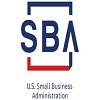Balancing FDA Compliance in a Pharmaceutical Environment
05/12/2019
Category: Research
Regulatory compliance is a significant topic among quality management personnel. In a pharmaceutical environment, failure to comply with FDA regulations can have serious consequences. The task of operating various departments such as processing, research and development, packaging, and distribution and ensuring that quality compliance is being achieved can be difficult. FDA compliance consultants who are experts in regulatory compliance will warn their clients that quality compliance can be mastered only when a multitude of factors are controlled and closely maintained.
One key component in maintaining compliance throughout the company is a robust quality management program. A necessary characteristic of the quality program is excellent attention to detail. Quality management personnel must be thorough and knowledgeable in FDA regulations. Some pharmaceutical companies contract with FDA compliance consultants to audit their facilities. Audits can serve the purpose of mock FDA inspections, which will allow the pharmaceutical company to mitigate any findings prior to an actual FDA inspection. FDA compliance consultants will focus their attention on frequently missed items, such as cGMP management, CAPA control, vendor audits, and SOP deviations. Internal audits are effective but are no substitute for external audits. FDA requires that pharmaceutical manufacturing facilities adhere to stringent guidelines to maintain quality control.

FDA compliance consultants will make observations of potential violations and offer recommendations to improve the facility’s processes. An extensive review of FDA compliance training records and methods should be performed. Internal quality management personnel are often not aware that the training program may be inadequate. Many inadequacy violations are issued by the FDA, such as complaint handling, validation procedures, and CAPA documentation. Personnel handling these activities should be trained thoroughly with annual training refreshers. FDA compliance consultants can help identify any weak links throughout the organization. A well-developed CAPA system should include a strong root cause analysis, preventing future deviations for the same issue. FDA compliance consultants may insist that training programs incorporate software or web-based applications that encompass SOPs, training, processes, data records, CAPA, document control and internal audit controls.
Software solutions will allow a company to become more efficient by streamlining processes and can enhance quality control measures. FDA compliance consultants can assist a pharmaceutical company with pharmacovigilance matters in pre/ post-marketing phases of product development. Providing trending information and developing resolutions for any pharmacovigilance issues are other key items to outsource to FDA compliance consultants. Pharmaceutical companies should have a risk management program in place that clearly identifies risks associated with each hazard from the design stage to post-production. FDA compliance consultants can offer a review, evaluation, and post-production data analysis to enhance your risk management processes.
In conclusion, a pharmaceutical company will need to have an amazing quality compliance program with experienced personnel to comply with FDA’s ever-changing regulations. Recalls and customer dissatisfaction can be costly. The best pharmaceutical companies will supplement with FDA compliance consultants to ensure their program is operating at its best. Utilization of FDA compliance consultants allows pharmaceutical companies to optimize their quality programs without the need to hire additional personnel.
Author Information
Christina Sanchez Miller, MPH has over 20 years of management, biologics, quality assurance and research experience in the medical field. She is a published author in scientific books, papers and has presented at several international conferences. Christina has developed medical applications in the biologics field. Her experience includes operations and consulting in FDA Adverse Event Reporting, FDA Product Deviation Reporting, FDA 483’s, cGTP’s, infection control, certified ISO Class 5, 7, 8 development and maintenance, QIC and auditing.
BRG is a global scientific & regulatory consulting firm with extensive experience in the strategic development of drug products, biologics, medical devices, combination products and in FDA regulatory affairs. BRG is a pharmaceutical consulting group focusing on NDA regulatory services, FDA dietary supplements, and IND consulting services. The opinions and statements in this blog are those of the authors and do not necessarily reflect those of BRG. This blog is based on personal experience and reviews of information publicly available or identified in other database searches.
tagging: fda compliance consultant > fda compliance consultants


